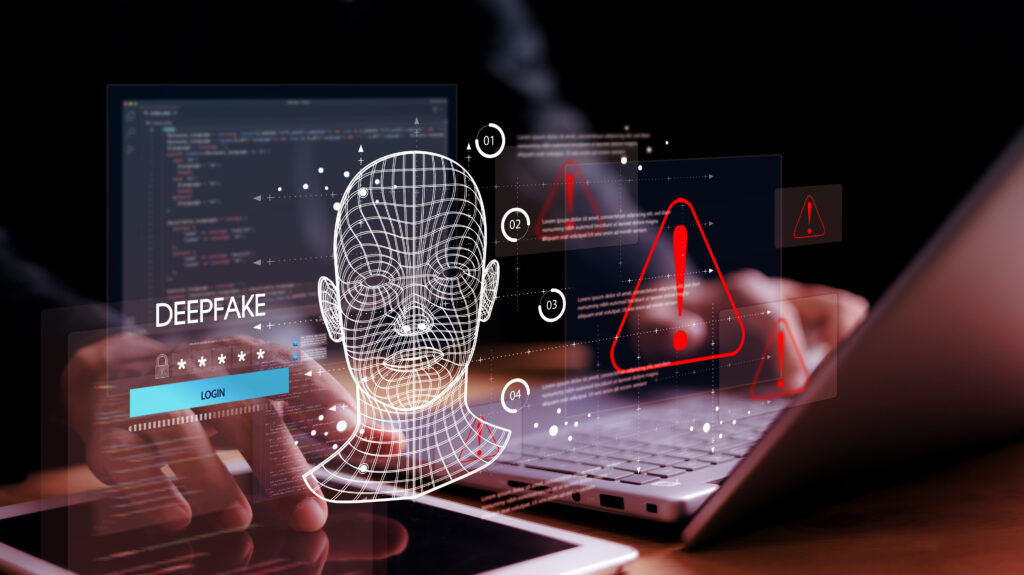
https://iframe.iono.fm/e/1596535?layout=modern” width=”100%” height=”170″ frameborder=”0
You can also listen to this podcast on iono.fm here.
JEREMY MAGGS: Deepfakes and AI-driven fraud have moved beyond mere science fiction; they have become pressing realities. In South Africa, deepfake incidents have skyrocketed by an incredible 1,200% in just one year, complicating the distinction between genuine and fabricated voices, images, and videos.
This situation goes beyond technology; it represents a growing mistrust among businesses, government entities, and consumers. Today, I am joined by Amritha Reddy, the senior director of fraud product management at TransUnion Africa. Amritha, welcome! That staggering 1,200% increase raises important questions. What are the driving forces behind this trend?
AMRITHA REDDY: Good afternoon, Jeremy. Thank you for having me. That statistic is certainly alarming. Before we explore this further, let’s clarify what a deepfake is: synthetic content—be it video, audio, or images—crafted using AI to convincingly mimic an individual. Deepfakes are frequently weaponized for fraud, spreading misinformation, and identity theft, including counterfeit videos of public figures, cloned voices in scams, and altered biometric data.
Read: South Africans witness a 54% rise in fraud as crime control deteriorates
The swift increase can be traced to South Africa’s digital landscape; internet penetration is around 79%, with over 50 million users and about 124 million mobile connections. This environment provides plentiful opportunities for exploitation, particularly aided by popular social media platforms, which have roughly 27 million users.
Access and availability, combined with the current landscape, intensify this particular threat.
JEREMY MAGGS: Can you specify where these deepfakes are utilized most effectively? Is it in the financial sector, politics, or social manipulation? What does the future look like in this context?
ADVERTISEMENT
CONTINUE READING BELOW
AMRITHA REDDY: Notably, our research shows that the fintech and banking sectors are hit hardest, largely due to modern platforms and simulation tools. The insurance industry is also at risk from fabricated claims videos and counterfeit medical documents; retailers contend with fraudulent storefronts and scams; while the media and government sectors suffer from voice impersonation and political misinformation. Various sectors face vulnerabilities due to wide digital access and utilization.
JEREMY MAGGS: You have aptly described this crisis as a matter of trust. How can businesses and consumers navigate this environment to ensure confidence in what they see and hear?
AMRITHA REDDY: This is an escalating issue. Importantly, it’s not solely a South African problem; globally, there’s been a 7% increase, reflecting similar trends worldwide. Trust must be anchored on multiple foundations.
First, we must understand the origins of the threat, its exploitation methods, and how to defend against it.
For businesses, this requires the implementation of technology that distinguishes authentic content from synthetic creations, employing real-time anomaly detection tools, and using biometric authentication and liveness detection to verify faces and voices.
Read: FSCA amplifies efforts against online scams
We complement these approaches with device fingerprinting and behavioral analytics to track interactions across devices. Furthermore, collaborative data sharing among banks, fintechs, telcos, governments, and businesses is critical for recognizing and addressing these threats.
JEREMY MAGGS: I see your points, but tools like biometric and behavioral analytics sound powerful. How can we ensure that fraud prevention does not become burdensome for consumers?
AMRITHA REDDY: This is a crucial question. What may seem inconvenient to some is not necessarily perceived that way by many. Recent statistics reveal that 88% of surveyed South Africans prioritize security over price and product quality on these platforms, indicating they’re willing to tolerate some inconveniences.
ADVERTISEMENT:
CONTINUE READING BELOW
What genuinely concerns them is how their personal data is managed, utilized, and protected.
Thus, it’s vital to foster an environment where security protocols do not introduce friction, ensuring consumers receive what they desire. The primary goal is to obstruct the fraudsters and organized criminals behind these attacks.
JEREMY MAGGS: You’ve mentioned the necessity of employing AI to counter AI. How does this translate in practical terms?
AMRITHA REDDY: While AI can enhance business scalability, it also has a sinister side, as fraud-as-a-service entities exploit similar technologies for nefarious aims. Countering this demands stringent defenses, including advanced verification tools within platforms that enable effective detection. Moreover, culturally, Africa tends to be trusting, complicating the landscape. Thus, it’s essential to combine technology with solid strategies, awareness, and digital literacy training—especially among our aging population and more tech-savvy, yet inexperienced youth.
Listen/read: SA’s digital deeds registry: A game changer or a cybersecurity threat?
Equipping individuals with the skills and knowledge to utilize AI tools and verification effectively is equally essential; a holistic approach is necessary.
JEREMY MAGGS: I value your perspectives, but what responsibility should governments and regulators undertake in establishing deepfake regulations and penalties?
ADVERTISEMENT:
CONTINUE READING BELOW
AMRITHA REDDY: Regulation and compliance are crucial. We require explicit laws to address individuals exploiting deepfakes; those found guilty should face severe consequences to deter future violations. Regulatory frameworks can provide this direction.
Read: How South Africans are engaging with artificial intelligence
Furthermore, government regulations should encompass all aspects related to artificial intelligence in our compliance standards, modernizing the rules we adhere to.
At present, there’s a notable gap as existing conventions and regulations fall behind the rapidly evolving digital sphere. It’s imperative to bridge these gaps and integrate AI into current compliance and regtech frameworks.
JEREMY MAGGS: Indeed, this gap must be addressed promptly, as deepfakes are nearing the point where they will be indistinguishable from reality, complicating efforts to foster a trustworthy digital environment.
AMRITHA REDDY: Absolutely. Communication, education, awareness, and discussions—like the one we’re having—are vital. Additionally, collaboration across sectors and nations to share fraud intelligence is essential, as these challenges often extend beyond local boundaries and affect South African citizens.
In summary, a concerted approach involving data sharing, education, and cross-sector frameworks is required to tackle these issues effectively, transforming insights into actionable strategies while addressing the concerns of individuals, processes, systems, businesses, and society as a whole.
JEREMY MAGGS: We can no longer claim ignorance. Thank you, Amritha Reddy, for your valuable insights. Senior Director, Fraud Product Management at TransUnion Africa.
Follow Moneyweb’s comprehensive finance and business news on WhatsApp here.





